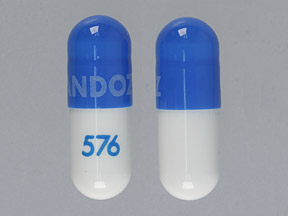Calcium acetate
Generic name: calcium acetate [ KAL-see-um-AS-e-tate ]
Brand names: Calphron, Phoslyra, PhosLo, PhosLo Gelcap, Eliphos
Dosage forms: oral capsule (667 mg), oral liquid (667 mg/5 mL), oral tablet (667 mg)
Drug classes: Minerals and electrolytes, Phosphate binders
What is calcium acetate?
Calcium is a mineral that is needed for many functions of the body, especially bone formation and maintenance. Calcium can also bind to other minerals such as phosphate, and aid in their removal from the body.
Calcium acetate is used to control phosphate levels to keep them from getting too high in people with kidney failure who are on dialysis.
Calcium acetate may also be used for purposes not listed in this medication guide.
Calcium acetate side effects
Get emergency medical help if you have signs of an allergic reaction: hives; difficulty breathing; swelling of your face, lips, tongue, or throat.
Calcium acetate may cause serious side effects. Stop using calcium acetate and call your doctor at once if you have:
-
high levels of calcium in your blood--nausea, vomiting, constipation, increased thirst or urination, muscle weakness, bone pain, confusion, lack of energy, or tired feeling.
Common side effects of calcium acetate may include:
-
increased calcium in the blood
-
nausea; or
This is not a complete list of side effects and others may occur. Call your doctor for medical advice about side effects. You may report side effects to FDA at 1-800-FDA-1088.
Warnings
You should not use calcium acetate if you have high levels of calcium in your blood.
Before taking this medicine
You should not use calcium acetate if you are allergic to it, or if you have high levels of calcium in your blood.
Tell your doctor if:
Tell your doctor if you are pregnant or plan to become pregnant. It is not known whether calcium acetate will harm an unborn baby, but having kidney failure or developing hypercalcemia during pregnancy may cause complications in the baby and the mother. The benefit of using calcium acetate during pregnancy may outweigh any risks..
Tell your doctor if you are breastfeeding.
Calcium acetate is not approved for use by anyone younger than 18 years old.
How should I take calcium acetate?
Follow all directions on your prescription label and read all medication guides or instruction sheets. Your doctor may occasionally change your dose. Use the medicine exactly as directed.
Measure liquid medicine carefully. Use the dosing syringe provided, or use a medicine dose-measuring device (not a kitchen spoon).
Take the capsule with food.
You may need to keep a food diary to measure how much calcium you are getting in your diet.
You may need frequent medical tests. Even if you have no symptoms, tests can help your doctor determine if calcium acetate is effective.
Store at room temperature away from moisture and heat.
Calcium acetate dosing information
Usual Adult Dose for Hyperphosphatemia:
Initial dose: 1334 mg (2 tablets/capsules, or 10 mL), orally, with each meal
Maintenance dose: 2001 to 2668 mg (3 to 4 tablets/capsules, or 15 to 20 mL) with each meal
Comments:
-Titrate dose every 2 to 3 weeks until an acceptable serum phosphorous level is reached.
Use: Reduce serum phosphorous levels in patients with end stage renal disease.
Related/similar drugs
aluminum hydroxide, PhosLo, Amphojel, Phoslyra
What happens if I miss a dose?
Take the medicine as soon as you can, but skip the missed dose if it is almost time for your next dose. Do not take two doses at one time.
What happens if I overdose?
Seek emergency medical attention or call the Poison Help line at 1-800-222-1222.
What should I avoid while taking calcium acetate?
Do not take additional calcium supplements unless your doctor has told you to.
Ask your doctor before using an antacid, and use only the type your doctor recommends. Some antacids contain calcium.
What other drugs will affect calcium acetate?
If you take any of the following medicines, take them separately from your dose of calcium acetate:
-
A fluoroquinolone antibiotic: Take your calcium acetate dose 6 hours before or 2 hours after you take an antibiotic such as ciprofloxacin, moxifloxacin, levofloxacin, Cipro, or Levaquin.
-
A tetracycline antibiotic: Take your calcium acetate dose 1 hour before or 1 hour after you take an antibiotic such as doxycycline, minocycline, tetracycline, Doryx, or Oracea.
-
Thyroid medication: Take your calcium acetate dose 4 hours before or 4 hours after you take the thyroid medicine.
Other drugs may affect calcium acetate, including prescription and over-the-counter medicines, vitamins, and herbal products. Tell your doctor about all your current medicines and any medicine you start or stop using.
More about calcium acetate
- Check interactions
- Compare alternatives
- Pricing & coupons
- Reviews (4)
- Drug images
- Side effects
- Dosage information
- During pregnancy
- Drug class: minerals and electrolytes
- En español
Patient resources
Other brands
PhosLo, Phoslyra, Calphron, Eliphos
Professional resources
- Calcium Acetate Capsules prescribing information
- Calcium Acetate Gelcaps (FDA)
- Calcium Acetate Tablets (FDA)
Other brands
Related treatment guides
Further information
Remember, keep this and all other medicines out of the reach of children, never share your medicines with others, and use this medication only for the indication prescribed.
Always consult your healthcare provider to ensure the information displayed on this page applies to your personal circumstances.
Copyright 1996-2024 Cerner Multum, Inc. Version: 9.02.

